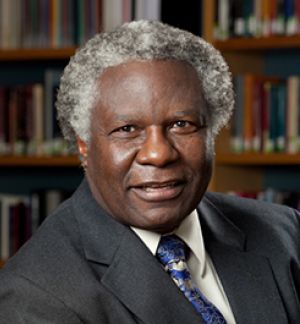Letter to the Editor
Sir, Just before the World Economic Forum, the UN Secretary General Ban Ki-moon listed a new agreement on climate change as his top priority for 2013.
In his inaugural address, President Obama also cited the goal of tackling this threat to our planet.
But after a week where 2,500 of the world's leaders and thinkers gathered in Davos, the reaction to these statements is telling: there has been discussion but still the political inertia continues — on climate change and many other issues. When so many millions still struggle to achieve life's basics — shelter, food, healthcare, education, we should be moved to action, not acquiescence.
Our thinking should be radical and unconstrained by convention. We should look "outside the box" to create products and services previously undreamed of and achieve solutions to seemingly intractable problems.
A few years ago, the US National Academy of Engineering proposed 14 "game-changing" goals for the world (http://www.engineeringchallenges.org/) including making solar energy economical and developing the technology for carbon capture and sequestration.
This bold vision has inspired the first Global Grand Challenges Summit, an unprecedented international event to be hosted by the Royal Academy of Engineering in London this year, in collaboration with the NAE and the Chinese Academy of Engineering.
We the undersigned will be among more than 400 engineers, scientists, industrialists and thought-leaders from around the world who will meet for this summit in March, with the goal of realising our technological dreams and using what we learn to improve global sustainability, resilience, health, education, economic growth and overall quality of life.
The summit will be disruptive, forward-looking and internationally collaborative. It starts with the premise that the most valuable global commodity today is not oil, gold or grain: it is ideas.
Fresh thinking and collective knowledge must flow between nations as readily as investments and goods.The issues we face do not recognise borders, national or ideological. We understand that the solutions will be both social and technological. Politics underpins both, so we call on our leaders to join with us in this conversation and meet these grand challenges head on.
Professor Frances Arnold, Caltech; Eric Brown, IBM; Dr Margaret Anne Craig, Clyde Biosciences; Professor Ara Darzi, ICL; Professor Dame Ann Dowling, Cambridge; Dr Regina E. Dugan, Motorola Mobility; Professor Neil Gershenfeld, MIT; Alexandra Daisy Ginsberg, Edinburgh; Dr Paul Golby, National Grid; Dr Saul Griffiths, Other Lab; Professor John Hennessy, Stanford; Professor Andy Hopper, Cambridge; Professor Calestous Juma, Harvard; Dean Kamen, First; Dr Robert Langer, MIT; Dr Mike Lynch, Autonomy; Professor Robert Mair, Cambridge; Robert Matheson, STEM Early College High School; Dr Rebecca Richards-Kortum, Institute for Global Health Technology; Professor Helen Storey, Catalytic Clothing; Professor Chris Wise, Expedition Engineering; Dr Craig Venter, J. Craig Venter Institute; Dr Jianyun Zhang, Nanjing Hydraulic Research Institute
Juma, Calestous. “Engineers Square up to Meet Grand Challenges.” Times, February 4, 2013





